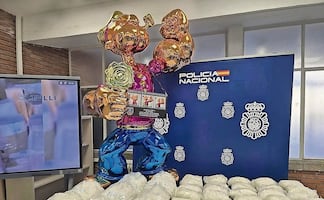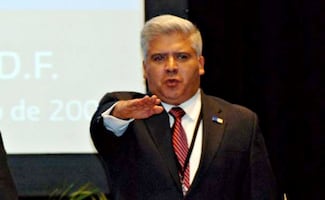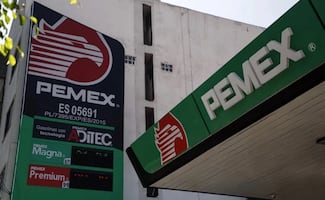Más Información

Mármol con metanfetamina y millones ocultos; las claves de la mayor red de droga en Europa ligada al Cártel de Sinaloa

Trump ordena retiro de EU de 66 organizaciones internacionales; "ya no sirven a los intereses nacionales", señala

Petro conversa con Delcy Rodríguez y propone diálogo tripartito con EU; busca contener crisis en Venezuela

Trump anuncia que Venezuela comprará sólo productos fabricados en EU; inversión incluirá alimentos, medicinas y equipo médico
By José Antonio Gurrea
"Hi, bro, welcome to weed capital!", said Joel Camarena when I arrived at Cronic Life (sic, without h), the shop where this man from Chihuahua sells marijuana-related products, such as water pipes and rolling paper.
Camarena, 40, also publishes a magazine called Cronic that promotes the legalization of the drug nationwide.
The place is also one of the stops of the Rollin Joint tour, a bus owned by him where people can smoke weed without restrictions for five hours for US$40 per person.
"I started selling marijuana when I lived in Puerto Palomas, Chihuahua. It was 1988 and I was 13. I stole the drug from my uncle, who was a local dealer, and I sold it in Columbus, the American city that was invaded by Pancho Villa. Those were my beginnings," Camarena explained with a hint of pride.
- How did you transport the marijuana?
In a passenger bus that crossed the border every day. I knew that the bus was not checked once a week, so that is when I took the weed with me.
Joel arrived in Denver in the early 90s, where he began to work for gangs and expand the business. "I started moving large amounts of weed in cars. I had people in Juárez and Denver working for me. From 1996 to 2001 I smuggled up to two tons of pot per month,” he said.
In 2001 he was arrested in the U.S. with a large amount of weed hidden in the gas tank. He spent three years in jail, until 2004.
- Did you stop selling marijuana when you were set free?
No, I only became more cautious, but I could not leave the business. This is what I do.
- Were you arrested other times?
Yes, in 2005. It was here in Denver. When I was arrested they beat me and I ended up in the hospital. I hired a lawyer and accused police of violating my human rights. I won the case and they could not imprison me.
I went back to business and in 2007 I was caught on the way from Palomas to Juárez. This time it was the Mexican police. We were "well loaded". They let us go, but they took all the weed from us except one pound, as well as my watch and our cell phones. After that I retired and started working for a computer company.
Two years later, in 2009, medical marijuana was legalized in Colorado and Joel Camarena's life took an unexpected turn.
"The first thing I did was publishing the magazine and sell weed to dispensaries" he explained.
Today, six years later, with a shop, a bus and his magazine, Camarena is happy and making good money.
"Bro, whatever happened to me is in the past. Now we must look ahead. In Colorado we are making history. The next U.S. president must realize that there is no other way but to legalize pot. More and more people have understood that prohibition only begets violence, that it is a failure,"he added.
- What do you think of “hard drugs”?
Hard and synthetic drugs are highly addictive, they are poison. They should not be legalized, they are not the same as weed. I have never sold any drugs other than marijuana. Pot is medicine, pure medicine.
"I will raise the issue of Mexico in the next issue of Cronic", he said about his bimonthly publication, that costs US$4.20 and has 78 pages.
"Cronic has very interesting articles and recommendations about what you can and can not do in Colorado, the best kinds of weed and dispensaries and discount coupons," Camarena said.
Noticias según tus intereses
[Publicidad]
[Publicidad]










